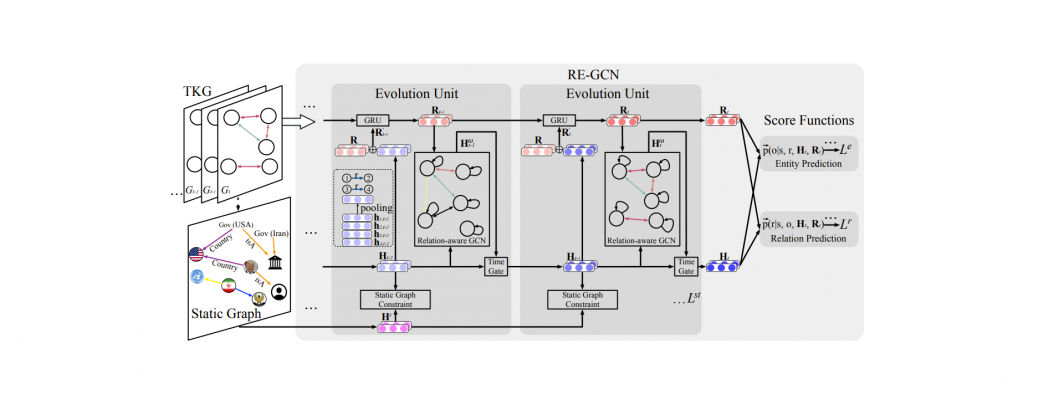
Knowledge Graph (KG) reasoning that predicts missing facts for incomplete KGs has been widely explored. However, reasoning over Temporal KG (TKG) that predicts facts in the future is still far from resolved. The key to predict future facts is to thoroughly understand the historical facts. A TKG is actually a sequence of KGs corresponding to different timestamps, where all concurrent facts in each KG exhibit structural dependencies and temporally adjacent facts carry informative sequential patterns. To capture these properties effectively and efficiently, we propose a novel Recurrent Evolution network based on Graph Convolution Network (GCN), called RE-GCN, which learns the evolutional representations of entities and relations at each timestamp by modeling the KG sequence recurrently. Specifically, for the evolution unit, a relation-aware GCN is leveraged to capture the structural dependencies within the KG at each timestamp. In order to capture the sequential patterns of all facts in parallel, the historical KG sequence is modeled auto-regressively by the gate recurrent components. Moreover, the static properties of entities such as entity types, are also incorporated via a static graph constraint component to obtain better entity representations. Fact prediction at future timestamps can then be realized based on the evolutional entity and relation representations. Extensive experiments demonstrate that the RE-GCN model obtains substantial performance and efficiency improvement for the temporal reasoning tasks on six benchmark datasets. Especially, it achieves up to 11.46\% improvement in MRR for entity prediction with up to 82 times speedup comparing to the state-of-the-art baseline.